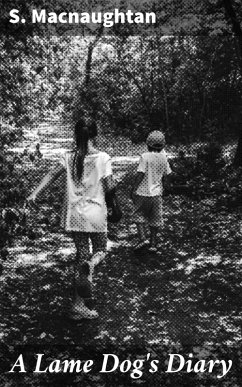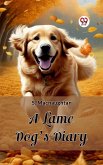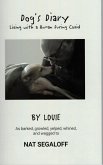In "A Lame Dog's Diary," S. Macnaughtan presents a poignant exploration of disability and identity through the metaphorical lens of a canine narrator. The narrative unfolds with a blend of wry humor and deep existential reflection, capturing the daily struggles and insights of a dog grappling with its physical limitations while navigating the complex relationships with its human companions. Macnaughtan's writing style is richly descriptive, employing vivid imagery and an engaging first-person perspective that invites the reader into the dog's world, while also resonating with broader themes of resilience and the quest for belonging in a seemingly indifferent society. S. Macnaughtan, a notable figure in early 20th-century literature, often infused her works with elements from her own experiences and perspectives on societal constraints. Growing up in an era marked by shifting attitudes toward disability, Macnaughtan's empathy for the marginalized undoubtedly influenced her decision to narrate this tale through the eyes of a seemingly simple creature facing profound challenges. This dynamic background enriches the text, allowing readers to appreciate the nuanced commentary beneath the humor. Readers seeking a thought-provoking and heartwarming narrative should delve into "A Lame Dog's Diary." Macnaughtan'Äôs unique blend of humor and pathos challenges assumptions about disability and companionship, making it a compelling read for anyone interested in the intricacies of life, empathy, and resilience. This evocative work serves not only as entertainment but also as a valuable social commentary for contemporary audiences.
Dieser Download kann aus rechtlichen Gründen nur mit Rechnungsadresse in A, B, BG, CY, CZ, D, DK, EW, E, FIN, F, GR, H, IRL, I, LT, L, LR, M, NL, PL, P, R, S, SLO, SK ausgeliefert werden.









